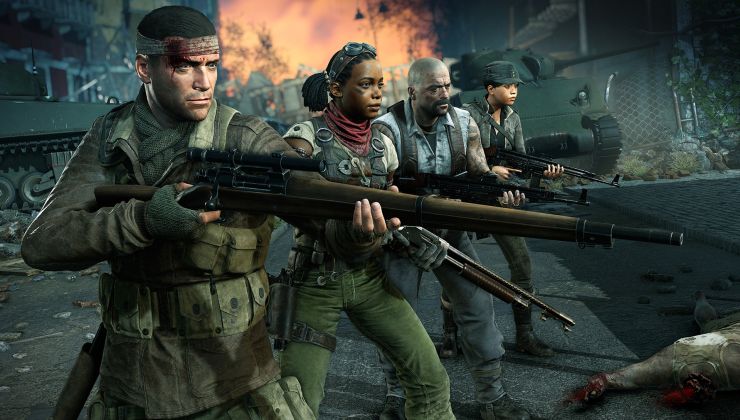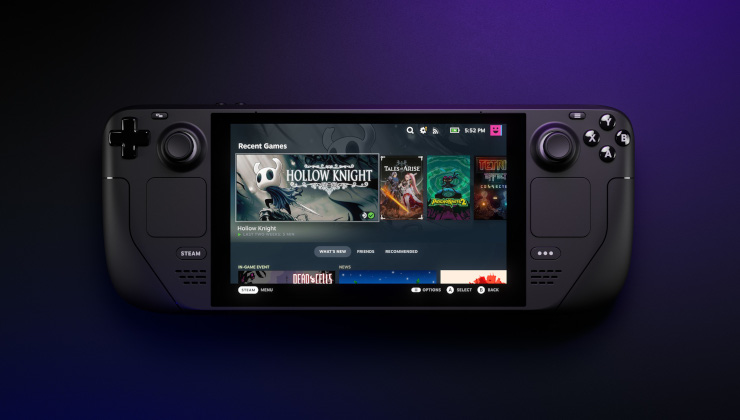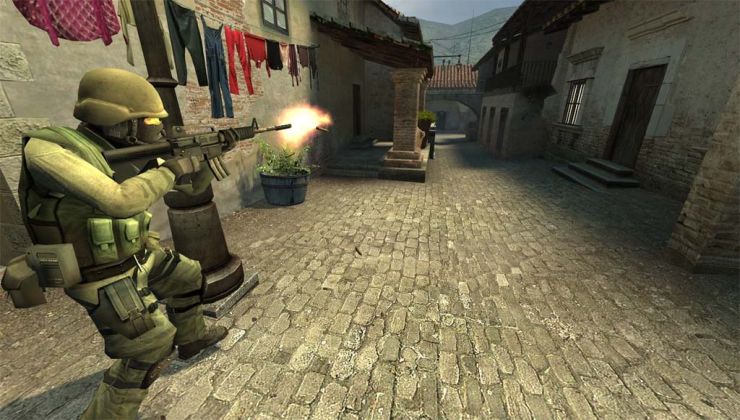Two bits of major news to cover for the Steam Play Proton compatibility layer, with some exciting major changes coming in with updates. Don't know what Steam Play Proton is? Go take a look at our dedicated page.
Firstly, if you have an AMD GPU and you don't mind grabbing the latest development code for the Mesa graphics drivers - Cyberpunk 2077 should actually work on Linux with the new Proton 5.13-4 release. Valve developer Pierre-Loup Griffais mentioned that CD PROJEKT RED allowed them some early testing time to get the work done for both vkd3d (the Direct3D 12 to Vulkan layer) and radv (the AMD Mesa Vulkan driver). As an NVIDIA GPU owner, this makes me quite jealous as it seems my only other current choice on Linux is Stadia or GeForce NOW (unofficially - until later in 2021).
Additionally, there's now also a new Proton Experimental branch available which has the start of major architectural changes to Wine. This brings with it a plan to reduce CPU overhead and improve performance in scenarios related to input and windowing. Seems Proton Experimental is an additional version of Proton, so you would install it along side the other versions currently available for this compatibility tool.
You can find the Proton changelog here.
Need help and / or tech support? Be sure to check out our dedicated Forum.
It's about the long term here. Stadia has helped Linux game development 10X what Valve has been able to do thus far in terms of AAA studios developing for/on Linux. While you may never benefit directly from this, its benefits are there.
Uh... what?? Do you mean "Stadia has helped Linux game availability 10X what Valve has been able to do thus far"? Because the points being made above are that Stadia has only very indirect impact on actual Linux game development.
And the benefits aren't there. They probably won't be for years, and even that's assuming that all the other AAA studios don't do what CDPR did, which was to pass the buck on Vulkan entirely to another company to deal with. Which bypasses the one benefit we thought we might get from Stadia - greater engagement with Vulkan.
To be completely clear - I'll never use a streaming games service, so I'm talking here as a Linux gamer, who is wondering whether Stadia can have any useful/positive impact on my future gaming experience.
I doubt they will. I mean are they doing anything like Valve with hiring coders to actually work on Linux drivers, libraries, etc? I'm betting no. At least nothing they're sharing with the community at large. Google's whole thing has always been about using the Linux kernel for their own purposes, but not really giving us open platforms to work on.It's about the long term here. Stadia has helped Linux game development 10X what Valve has been able to do thus far in terms of AAA studios developing for/on Linux. While you may never benefit directly from this, its benefits are there.
Uh... what?? Do you mean "Stadia has helped Linux game availability 10X what Valve has been able to do thus far"? Because the points being made above are that Stadia has only very indirect impact on actual Linux game development.
And the benefits aren't there. They probably won't be for years, and even that's assuming that all the other AAA studios don't do what CDPR did, which was to pass the buck on Vulkan entirely to another company to deal with. Which bypasses the one benefit we thought we might get from Stadia - greater engagement with Vulkan.
To be completely clear - I'll never use a streaming games service, so I'm talking here as a Linux gamer, who is wondering whether Stadia can have any useful/positive impact on my future gaming experience.
That's good to know. Northern EU. Everytime I interact with Youtube, when reviewing their privacy popup, everything is turned on.And Google is somehow much better? The problem isn't that they shutdown projects, they are the problem. I've seen many sites and services respect GDPR. But Google? They have already opted you into everything when you use their services. And when you click to opt out they add in a extra layer of barrier that is a prompt asking you if you are sure. Making the process of protecting yourself from their data collecting cumbersome and tiring.
Curious what country you live in that allows Google to use opt-out policies.
Here in the UK, everything Google does is opt-in. Everything.
Location. Contacts. Imprint. Assistant. It's CONSTANTLY popping up permissions when you first start using their services. Hell, you can't even search without accepting the privacy policy.
It's about the long term here. Stadia has helped Linux game development 10X what Valve has been able to do thus far in terms of AAA studios developing for/on Linux. While you may never benefit directly from this, its benefits are there.Long term we could be looking at Stadia's streaming exclusive nature devouring local releases and at same time being one of many products under a ChromeOS/Fuschia ecosystem. There is zero commitment from Google to preserve gaming on Linux or/and local game releases.
Valve's commitment on other hand has been clear. Their goal is to make Windows games run as well as they possibly can on Linux through Proton, and they encourage Vulkan use. Unlike Google they also have provided all of their games natively. Proton is long term and it's at core of Valve's strategy to help Linux. Stadia has helped 10X of Valve's efforts? Absolute nonsense. It's not about getting developers to use Linux software, it's about market share. With market share developers will use Vulkan and every other software that works on Linux. You are not making a good point if you think that reason Linux isn't supported is because developers don't want to use or isn't used to using Linux friendly software like Vulkan. Stadia builds market share for Google, Proton builds market share for desktop Linux.
As I've pointed out, just like developers decide to forego a native release because their game works with Proton, developers could decide to forego local development and rely on Stadia. They could decide to target Linux players with Stadia or/and not provide Vulkan renderer for Proton compatibility.
Last edited by Linuxwarper on 22 Dec 2020 at 12:25 am UTC





 How to set, change and reset your SteamOS / Steam Deck desktop sudo password
How to set, change and reset your SteamOS / Steam Deck desktop sudo password How to set up Decky Loader on Steam Deck / SteamOS for easy plugins
How to set up Decky Loader on Steam Deck / SteamOS for easy plugins
See more from me